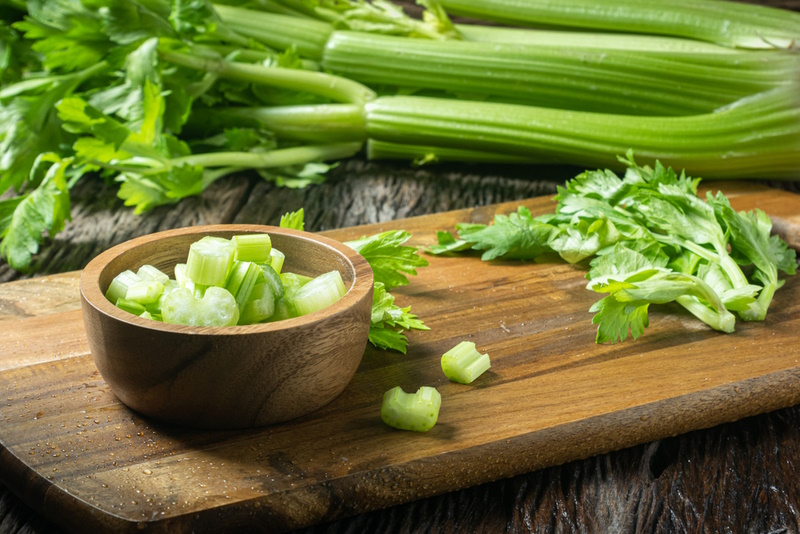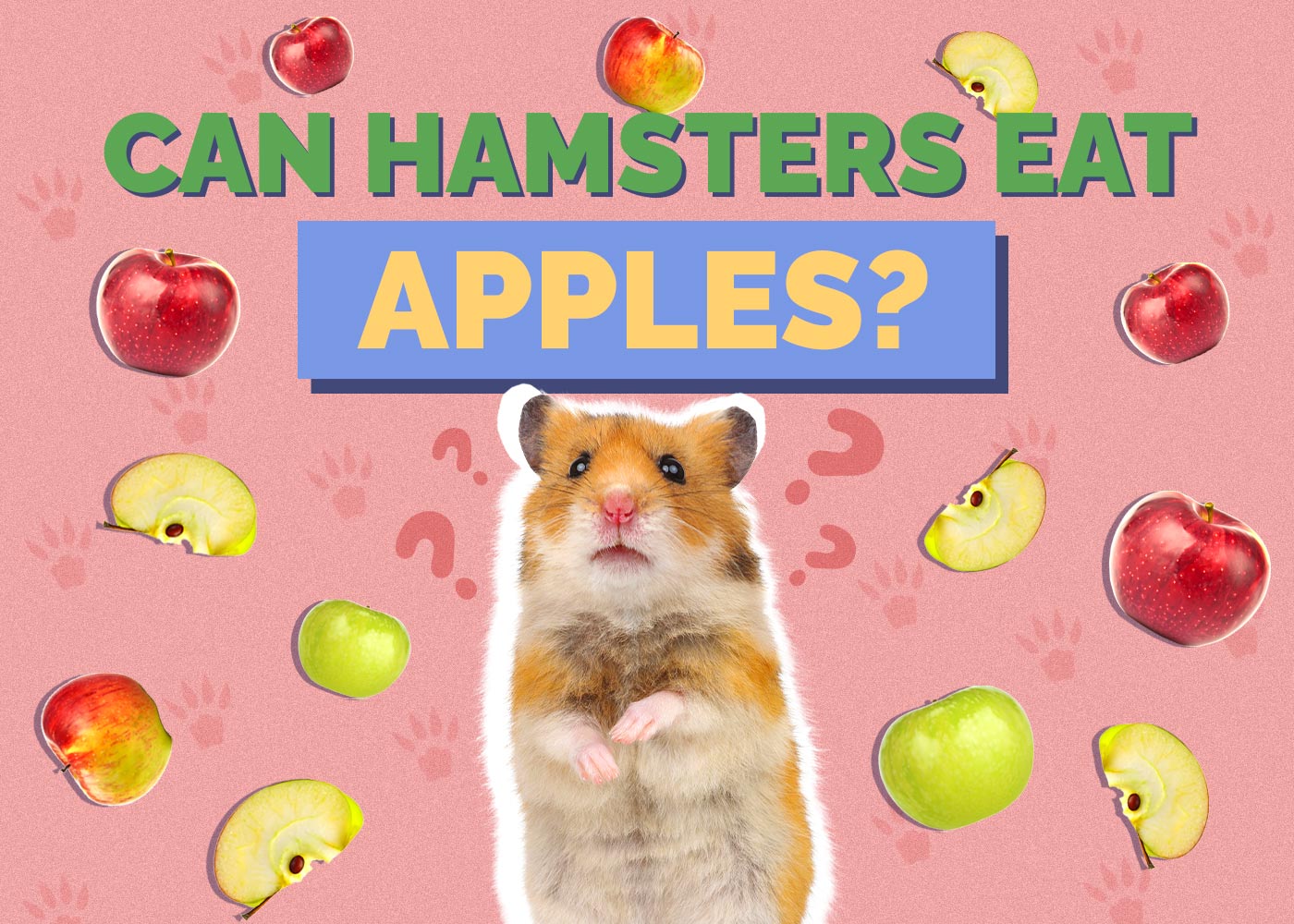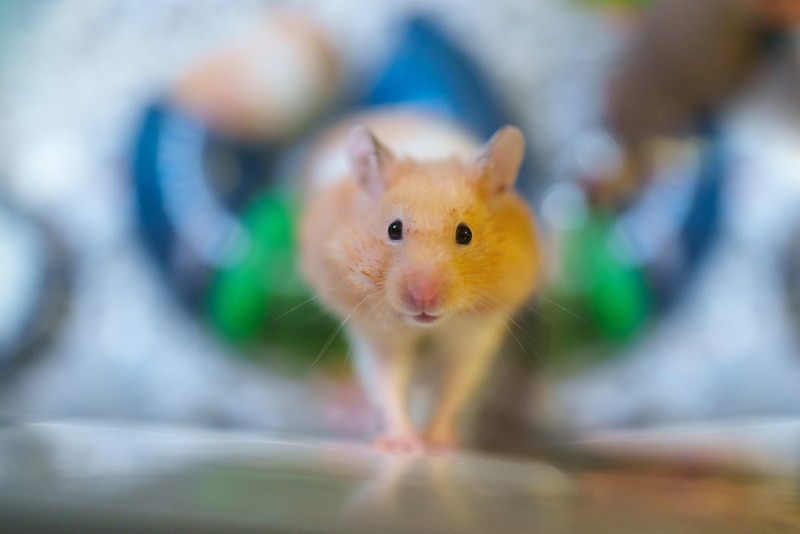Can Hamsters Eat Rabbit Food? Vet-Verified Nutrition Facts & FAQ

Updated on
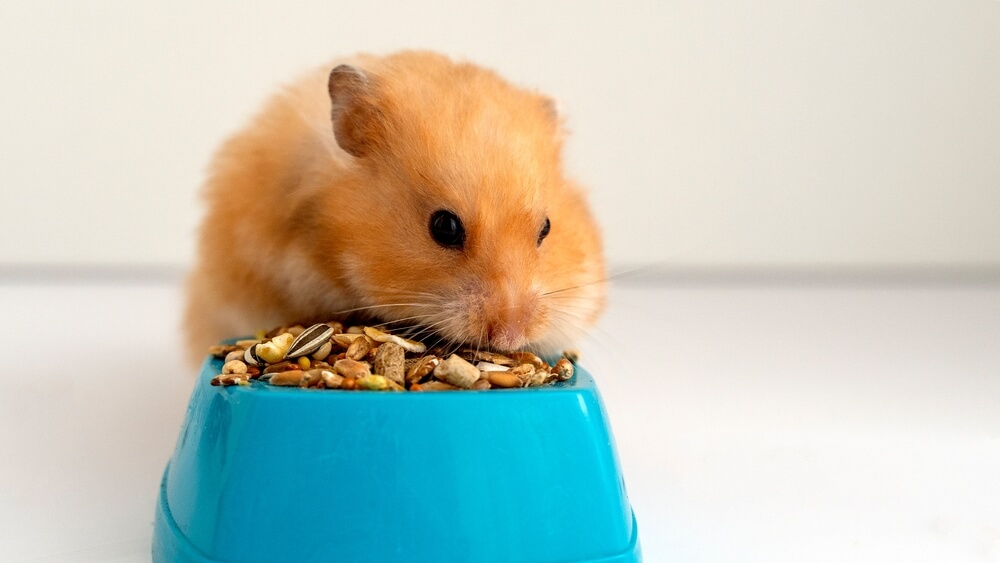
Click to Skip Ahead
This article has been reviewed for factual accuracy by a qualified veterinarian, using information available at the time of publishing. Hamster owners are urged to consult with their veterinarian when making dietary decisions for their pet. This article is designed to provide general information but it does not take into account your pet’s health status or circumstances.
Hamsters are small, cute pets. They are relatively low maintenance, certainly when compared to larger pets, but there are requirements to ensure that they stay fit and healthy. This includes feeding an appropriate diet.
Typically, this means feeding a commercial, pelleted diet, supplemented with a small amount of greens, root vegetables, and some fruit. Fortunately, there are good quality commercial foods available.
You shouldn’t feed rabbit food to your hamster because while a small amount eaten by mistake shouldn’t cause any problems, rabbit food is not formulated to meet the nutritional requirements of a hamster and could make your little hamster ill if fed too often.
What’s In Rabbit Food?
Rabbits need a very high-fiber diet. They are given a diet that consists primarily of hay, but this is supplemented with some commercial food. That food also contains hay but has additional beneficial ingredients like cereals and grains.

Can Hamsters Eat Rabbit Food?
The main difference between a rabbit diet and a hamster diet is that rabbits are herbivores and hamsters are omnivores. Hamsters require a source of dietary protein, in fact their diet should be 15-25% protein, something rabbit food does not have a lot of.
Although hamsters can eat hay, they do not need a diet as high in fiber as rabbits do. This means that rabbit food typically contains too much hay, which means a hamster will be getting too much fiber in its diet if they eat commercial rabbit pellets.
What’s more, rabbit food is formulated and designed for rabbits, so it meets their nutritional requirements for vitamins, minerals, and nutrients. These are not necessarily the same as a hamster’s needs. Therefore, regularly feeding rabbit food to a hamster will cause deficiencies in certain nutrients and may mean feeding too much of other nutrients. Feeding this kind of food to a hamster long term could lead to serious illness.
What to Do If Your Hamster Has Eaten Rabbit Food
If your hamster has eaten rabbit food as a one-off, it may not cause any immediate problems. Problems typically arise after long-term feeding of the wrong food type. Keep an eye on your hamster, ensure it has access to appropriate hamster food and fresh water, and consult a vet if you do see any signs of illness or ill effects such as changes in stool consistency or loss of appetite.

Hamster Diet
Hamsters naturally eat a combination of seeds, fruits, vegetables, insect larvae, some insects, and cereals. They forage for food in their local habitat but will usually eat some combination of these food sources. As pets, though, they are more often given pelleted food that contains all of the essential vitamins, minerals, and macronutrients they require. Owners may also feed a small amount of supplementary, fresh food. This includes green vegetables and root vegetables, as well as some fruit.
Hamsters, like a lot of animals, enjoy some variety in their diet. As such, and because it helps ensure you’re feeding a full variety of essential minerals, it is a good idea to offer a diet consisting of many different foods.
The following are foods that you can feed your hamster. Some are suitable for regular feeding while others should only be given as an occasional treat.
1. Timothy Hay
Although hamsters do not need as much hay in their diet as rabbits, they still benefit from having some. Timothy Hay is a high-quality grass hay that is suitable for hamsters. You can use it as bedding, and if your hamster eats a little of the dried grass, it is not only safe, but it will benefit your pet’s digestive system.
2. Carrot
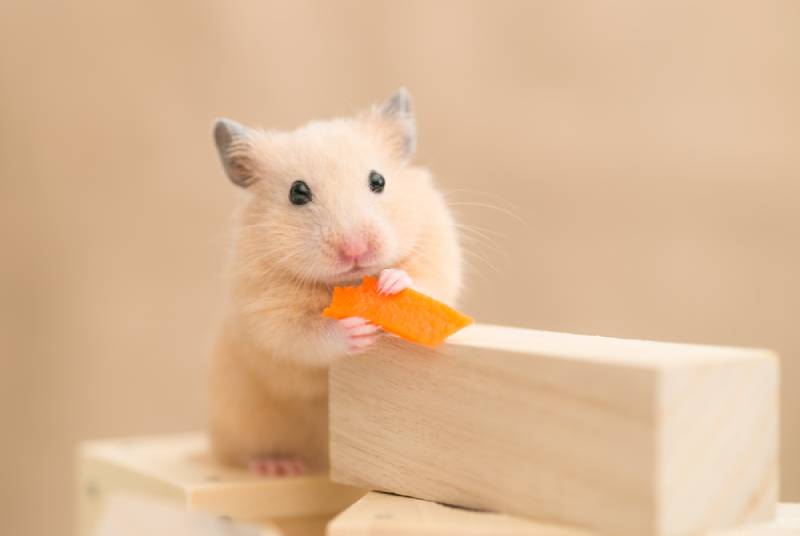
Carrots are crunchy and sweet, both of which are attributes that hamsters love in their foodstuff. In moderation, carrots are considered healthy for hamsters, but the relatively high sugar level means that they should not be fed in too large a quantity or too often. You can also feed carrot tops, which have less sugar and are still considered a delightful treat by most hamsters.
3. Apple
Apples are a healthy snack item for hamsters. They are high in vitamins A and C, as well as fiber. However, like carrots, they are high in sugar so they should only be fed as an occasional treat. Furthermore, apple seeds are toxic so you must ensure that you remove the seeds and avoid feeding the core.
4. Basil

Basil is high in vitamins K and A and contains some vitamin C. It also contains magnesium, potassium, and folate. Ensure the basil is washed thoroughly, as with any fresh food you give to your hamster, and feed a moderate amount at a time. Typically, hamsters love basil, but every hamster is different and yours may not enjoy this herb.
5. Egg
Eggs are especially high in protein, which is why you will see eggs and even eggshells in commercial pet food for dogs and cats. They are also considered a tasty and nutritious treat for hamsters. They can help ensure that your hamster is getting enough protein in its daily diet. Feed boiled egg once or twice a week and provide a small piece at each sitting. Do not feed the shell; although it is nutritionally healthy, it is sharp, and it could cut your hamster’s cheek pouch, mouth, or throat.
Conclusion
Hamsters are great little pets that are fun and cute. Many enjoy being handled, as long as you start handling them daily when they are young. Like any pet, they do have certain requirements that, as a responsible owner, you need to meet, and this includes feeding an appropriate diet.
Although rabbit food is not usually toxic to hamsters, it is likely not nutritionally balanced for them, either. Therefore, while a stolen pellet or two shouldn’t cause immediate illness, you shouldn’t feed rabbit food regularly and certainly not as a replacement for a complete hamster food.
Featured Image Credit: Image Credit: Ultraskrip, Shutterstock


